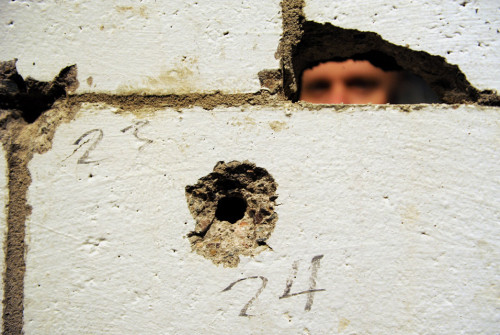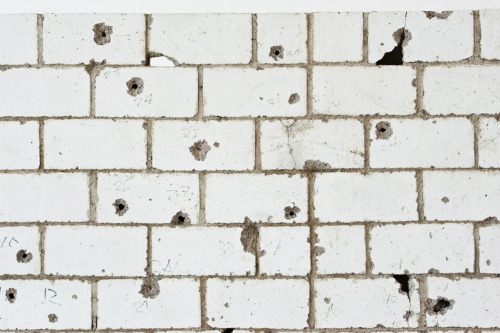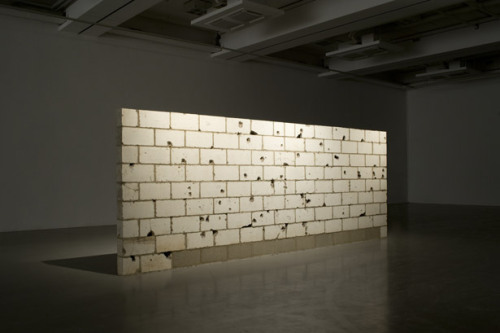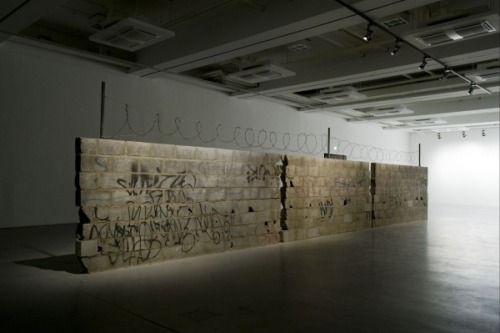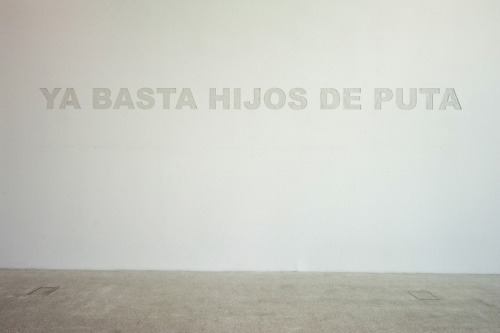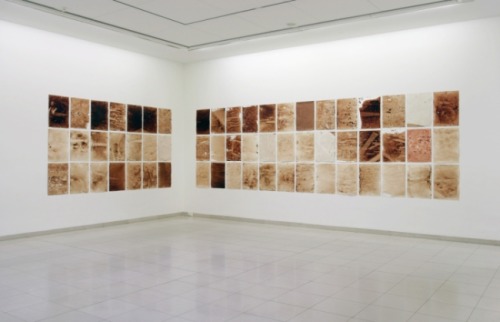Teresa Marolles (born in Culiacán, Mexico, in 1963) is presenting works which
Teresa Marolles (born in Culiacán, Mexico, in 1963) is presenting works which reflect the frightening extent to which the drug war is influencing Mexican society. The man-high concrete-block walls are witnesses of daily violence: they display bullet holes resulting from shoot-outs that have had a lasting impact on cities such as Ciudad Juárez, where the drug war is raging with particular vehemence. The Papeles (Papers, 2003) seem like painted abstract works; actually, these sheets of watercolour paper have been washed in the same run-off water and have absorbed blood and other organic materials, thus becoming ‘portraits’ of the dead. […] The immediate reaction is revulsion, and to regard Margolles’ objectives as cynical. Considering the history of Western art – closely bound up with Christianity and its images of suffering and death – it seems, however, that these works fit within quite a traditional iconography. Body parts are venerated as holy relics, while ‘imprints of death’ – such as St Veronica’s veil, on which Christ’s suffering face was imprinted, and the Turin Shroud – have been glorified as proof of Jesus’ divinity and suffering; Catafalco also bears witness to, verifies and commemorates lives that might otherwise have been forgotten.- freizeVia Art Daily:Using reduced but always drastic means, Teresa Margolles creates extremely poignant works of art. At first glance, her works often seem to be minimalist in their form. Viewers only discover that they are deeply emotional and dramatic when they become aware of the rigorous realism in the choice of material. Margolles uses substances such as blood, body fat or even water used to wash dead corpses not only symbolically, but also palpably, attacking human beings’ fears of contact in a subtle way. In the last ten years, her art has revolved around the issue of what happens after a person dies and what death leaves behind. The artist deals with the social dimension of the dead body as well as the physical remains after autopsies, and the treatment of this subject as a taboo. In addition – as it has become increasingly apparent in her most recent groups of works – she is interested in personal mourning rituals and social strategies of repression. Margolles work stands in close connection with the everyday realities of her home country Mexico, which has been dominated for years by drug wars between enemy cartels and where thousands of people fall victim to violent crimes every year. Her art can be viewed as an act of solidarity towards those who have died, as a vehement struggle against forgetting. Furthermore, she asks questions about the future of a society whose population seems to be directly affected and traumatised by the consequences of this violence. -- source link
#teresa marolles#mexican artist#drug wars
